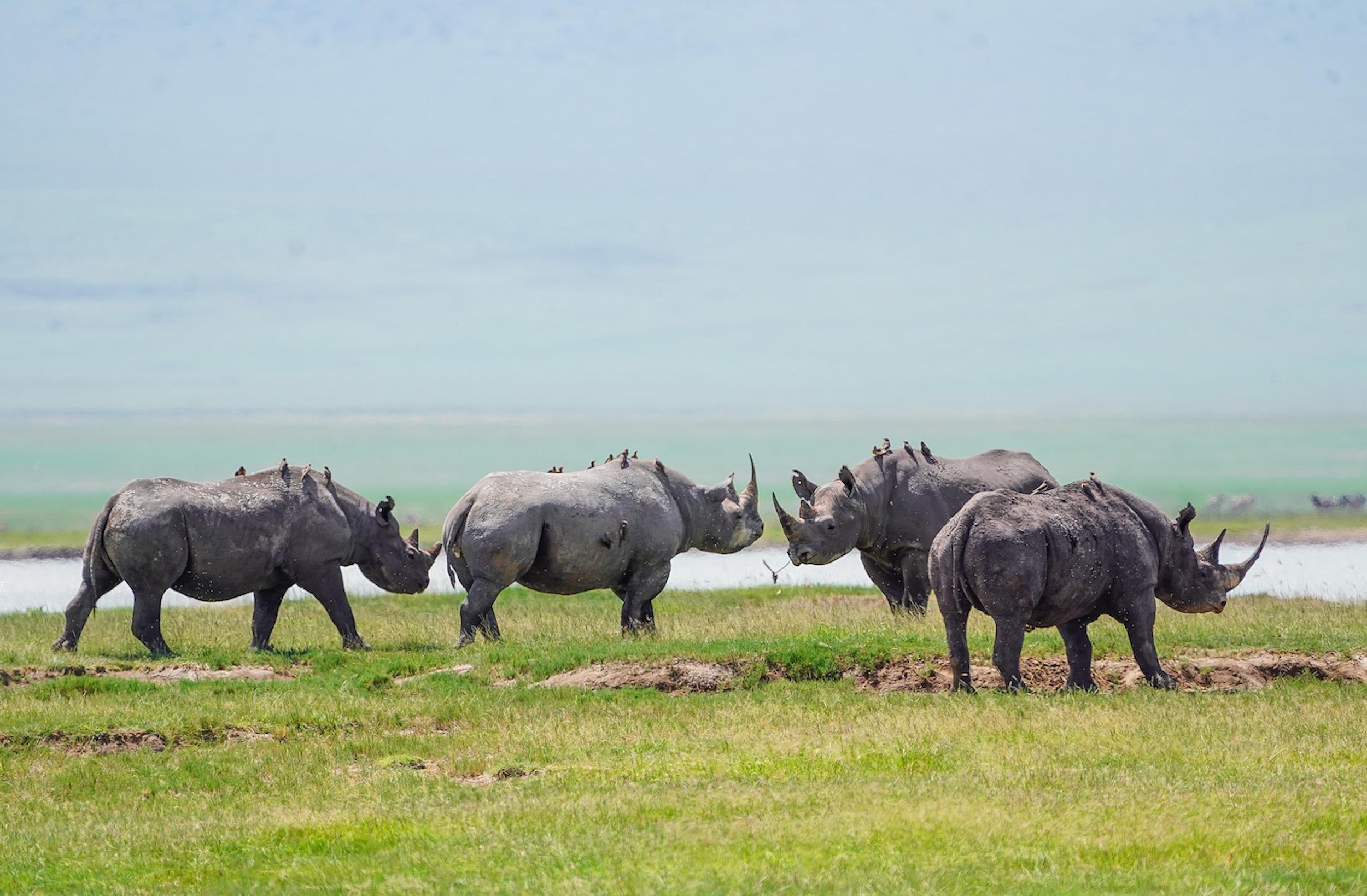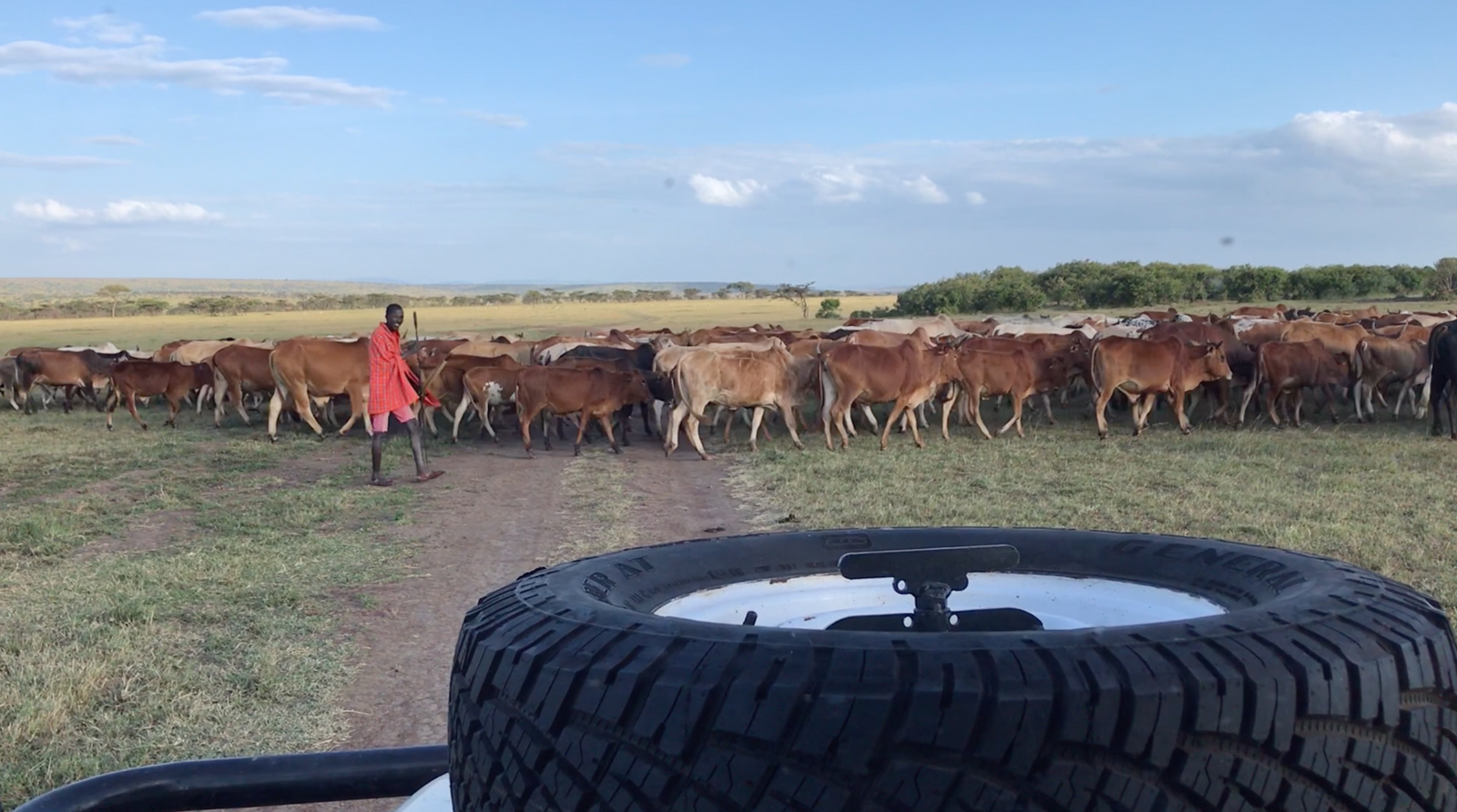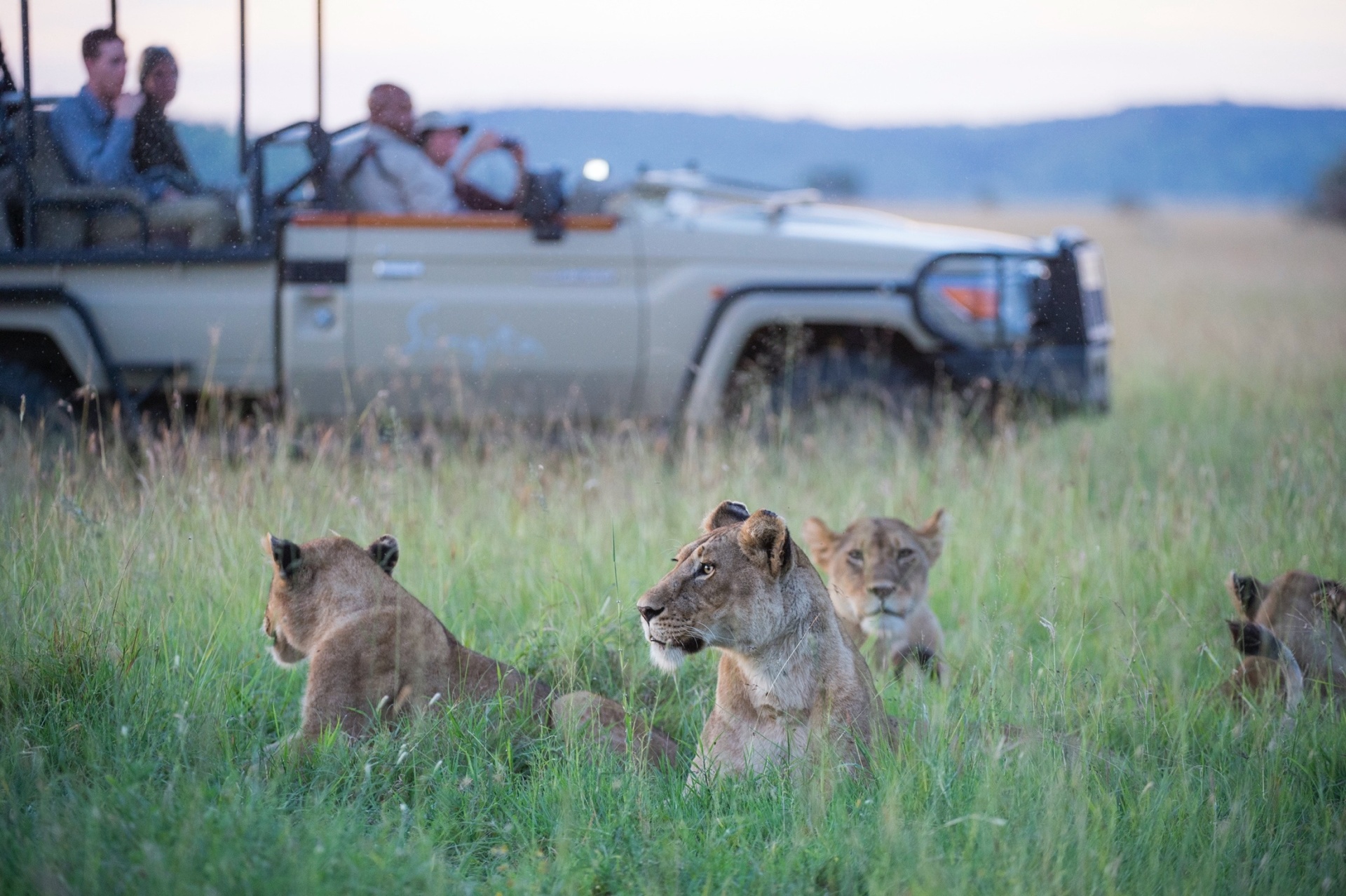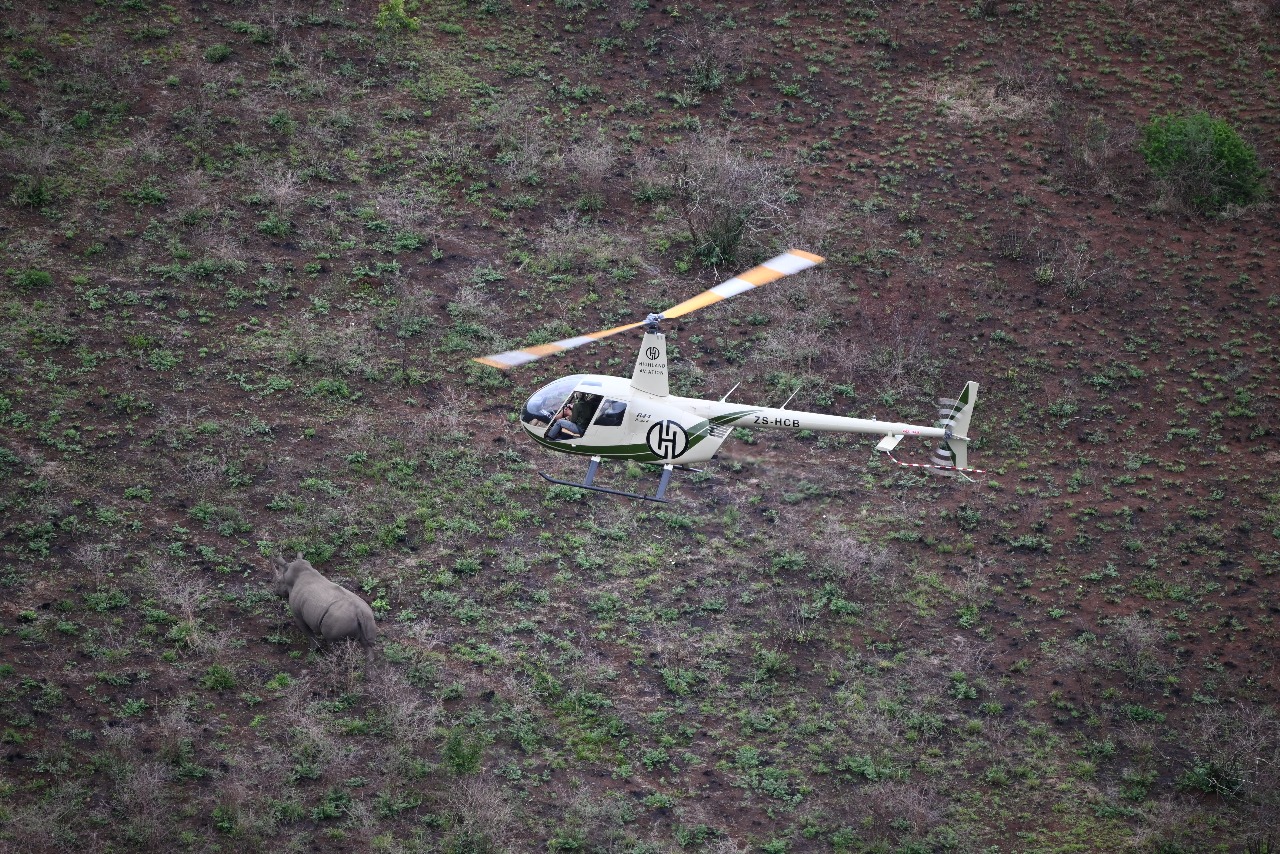Africa’s Wildlife Industry on a Knife’s Edge
The Ngorongoro Crater: A Case Study in Overtourism in East Africa
Why the IUCN downgraded the crater
Africa’s safari and wildlife industry is sitting on a knife’s edge. Booming visitor numbers are bringing in much-needed funding for conservation projects and community development. Yet, the proliferation of lodges and consequent overcrowding in parks is leading to habitat degradation and wildlife harassment.
Recently, the IUCN degraded Africa’s garden of Eden - Ngorongoro Crater - to a conservation area of “significant concern”. The decision was made because of accelerated environmental degradation, resulting from an explosion of tourism infrastructure, overpopulation and overgrazing
What travelers actually experience on the ground
We’ve seen and known about this issue for a good long while now. It is one of the reasons we don’t recommend the Ngorongoro Crater as a destination for our travelers. We visited the region ourselves a few years ago. And even back then, our experience was a mix of awe and disappointment:
"We stayed at a camp on the crater rim, right at one of the descent points. This meant we had the fantastic advantage of being one of the first to get down to the crater floor. This was the magical part. It truly is a garden of Eden, the dramatic crater walls rising above, circling a vast grassland filled with wildlife, grazing quietly in the early morning mist. We had a superb black rhino sighting and thoroughly enjoyed meandering through the dazzling display of zebra, wildebeest and gazelles.
The downside was that, within a matter of hours, the crater floor became chock-a-block with vehicles. We ended up bypassing a lion sighting as there were over 50 vehicles all jostling to get a look. We did our best to hide from the crowds by avoiding the “big sightings” and exploring quieter sections of the crater. Still, the number of vehicles was staggering and the sighting ethics of far too many of the guides incredibly poor, driving without care and zero regard for both wildlife and other vehicles. We left by early afternoon, having seen enough and thankful for the quiet moments we’d had first thing in the morning."
Within a matter of hours, the crater floor became chock-a-block with vehicles. We ended up bypassing a lion sighting as there were over 50 vehicles all jostling to get a look.

Masai Mara: The Ritz-Carlton Controversy Explained
Why development in migration corridors is dangerous
At the same time, across the border in Kenya, a legal battle is raging over the location of the Ritz-Carlton’s Masai Mara Safari Camp. The new, ultra-luxurious safari lodge is built on the Sand River, smack bang in the path of the wildebeest annual migratory route. The Ritz-Carlton franchise notes that the camp is unfenced and that their tents are built on elevated timber structures, "allowing for movement of animals” beneath. We think they are rather missing the point.
Here are some of the main issues with the Marriot's new location:
- Local activists allege that the lodge obstructs or restricts movement of wildebeest, zebra and other migratory species that rely on vast open landscapes and safe crossing-points.
- The dispute centres on whether proper environmental impact assessments were conducted, and whether the development violates the Narok region’s management plan that prohibits new accommodation until 2032.
- The luxury positioning ($3,500 per person per night) raises questions about whether profit motives outweigh ecological risk.
In short: infrastructure in migration corridors = high risk. The Masai Mara–Serengeti ecosystem depends on open, unblocked pathways. When tourism encroaches on those, the cost is borne not in occupancy rates, but in compromised wildlife resilience and ecosystem integrity.
The current level of tourism pressure was already "impairing the ecological integrity of the ecosystem, particularly the wildebeest migration." Many species' populations in the reserve have shrunk by over 80% since the 1970s, according to Kenyan government data. The Narok County even prohibited new accommodation until 2032. And still a new lodge was built in a proven migratory hotspot??
.png)
The role of community-led conservation groups
Meitamei Olol Dapash, director of the Institute for Maasai Education, Research and Conservation, filed suit in Kenya’s Environment and Land Court against Marriott, its local partner Lazizi Mara Limited, and government agencies. He serves as a voice for local grassroots Masaai groups that emphasise free, open land use, sustainable grazing, livestock-wildlife coexistence, and tourism managed on the communities’ terms.
This also draws attention to the question of conservation track records. Specialist safari operators, such as Singita, &Beyond, Wilderness, and Great Plains, have built reputations over decades by funding anti-poaching programs, community schools, and conservation initiatives involving the local Masaai communities as a central pillar of their lodges. Ritz-Carlton, by contrast, enters the sector with little history in the region.
The concern is that if profitability falters - a common challenge in safari hospitality - commitments to community and conservation could be the first casualties.

How Overtourism Harms Wildlife and Local Communities
The issue with Masai Mara overcrowding
When tourism outpaces the capacity of the ecosystem and the local community, the consequences are two-fold:
- As visitor numbers and tourism infrastructure grow beyond ecological limits, natural habitats are being degraded by off-road driving, soil compaction, vegetation loss, and the construction of new lodges in already-pressured ecosystems. These environmental changes reduce available grazing for herbivores, disrupt natural migration routes, and push wildlife into fragmented or marginal areas - undermining the migrational cycles that keep these ecosystems healthy.
- At the same time, high volumes of safari vehicles create congested, stressful conditions for wildlife. Dozens of vehicles crowding a single predator sighting or migration crossing can interrupt hunting, resting, feeding, and movement patterns. Poor sighting ethics - such as aggressive driving, surrounding animals, or off-track behaviour - further compounds the pressure on already-vulnerable species.
Local communities also bear the weight of this imbalance. As tourism infrastructure expands into grazing lands and wildlife corridors, pastoralists lose access to pasture and face increased conflict with wildlife. When tourism is not managed responsibly, the benefits do not equitably reach the communities whose stewardship is essential for conservation success.
The Need for Ethical Safari Travel and Sustainable African Safaris
In short: overtourism threatens the ecological integrity of wilderness areas, diminishes guest experience, places wildlife under unnecessary strain, and erodes community well-being. Reversing this trend requires a shift toward low-impact, conservation-driven travel models that put wildlife and local people -not mass tourism - at the heart of the safari experience. The solution lies in prioritising lower-volume, higher-impact safari models, strict sighting-protocols, community engagement and transparent conservation contributions.
These two cases, in addition to the torrent of recent media reports highlighting overcrowding on safari in East Africa - once again underscore the urgent need to refocus and put wildlife and the environment before the consumptive needs of humans.
We stand by the IUCN and Maasai Education, Research and Conservation Institute (the organization that filed the case against Ritz-Carlton/ Marriott group) in calling for change. Stakeholders - governments, conservation organizations, and local communities - working together to ensure that our natural landscapes are protected from the pressures of tourism development, so that they continue to not only survive, but thrive.

Conservation over Profit: How to Choose an Ethical Safari Operator
What responsible safari travel looks like
This situation emphasizes the critical need for companies in the travel industry to adopt practices that prioritize conservation over profit. Through considered, purposeful travel, we can contribute to the preservation of these natural landscapes for future generations. Sustainable stewardship should be at the forefront of our industry. As safari operators, we need to urge travelers to engage with their surroundings meaningfully and responsibly.
However, as conservation increasingly becomes a trendy marketing term or public relations strategy, we must ask ourselves: Are we truly contributing to conservation, or simply paying lip service to an increasingly popular greenwashing narrative? Bridging the gap between conservation and tourism requires more than just aligning with the latest “green” initiatives.
Why transparency matters
It necessitates tangible, transparent actions that support the dedicated individuals and organizations working tirelessly to preserve our most precious environments and wildlife. As travelers, you have the power to make a significant impact. You can do so by choosing to support companies that prioritize conservation and ethical tourism. By choosing to travel with purpose, you are not only enriching your own experiences but are also ensuring that future generations will inherit a world that thrives in its natural splendor.
How to evaluate conservation commitments
Are we truly contributing to conservation, or simply paying lip service to an increasingly popular greenwashing narrative?
It is our responsibility to advocate for land use that respects the delicate relationship between people and nature. By promoting initiatives that foster sustainable practices, we can #IgniteChange through mindful tourism that benefits both local communities and the environment.
Are you looking for a safari lodge, travel agent or other safari-related service provider that offers real impact? Have a look at their mission to learn about why they are doing the work they are doing.
- Why did their founders start the company?
- What is their goal?
- Are they here to do more than just create fancy safaris and give people a rad experience?
- Is there a deeper purpose to their work than just making a profit?
- Do they truly want to create a sustainable future for Africa and do their actions reflect that?
- Are they transparent about how, where and how much they contribute to conservation?
- Are they committed to keeping wild spaces thriving, so that safari tourism can be sustainable long after we are gone?
Companies that are in it for the right reasons don’t hide these values away. They’ll put their contributions front and center, without vague language or numbers. Because it is built into their business model, not retrofitted onto business-as-usual.
Wild Wonderful World’s 1% Conservation Model
How your safari booking supports vetted conservation work
At Wild Wonderful World Safaris, we turn these promises into tangible action as soon as you confirm your safari booking. As a company, we donate 1% of total safari booking value to conservation. We stand firm on radical transparency of our conservation mandate by publishing our conservation contributions and up-to-date reporting via our website.
This 1% is at no cost to our guests, nor do we achieve it by increasing our profit margins - rather, we take the funds out of our own pocket. This aligns with our mandate to sustainably support conservation through travel. As a Wild Wonderful World guest, you do not pay anything extra compared to booking your safari directly with a lodge or another travel agent.
At Wild Wonderful World Safaris, we donate 1% of total safari booking value to conservation. We stand firm on radical transparency of our conservation mandate by publishing our conservation contributions and up-to-date reporting via our website.
It is Your Choice: #TripleYourImpact through Matched Giving
In addition to our own automatic 1% donation for every safari booking, we offer you the opportunity #TripleYourImpact by matching our contribution and donating your own 1%. If you choose to do so, this triggers an additional 1% donated by Wild Wonderful World, effectively tripling the positive impact of your safari travels!
Let’s look at an example: If you book a safari to Africa at a price of USD 25,000, Wild Wonderful World automatically donates 1% to conservation, which equates (in this case) to USD 250. If you choose to match this 1%, we will double our initial 1% donation. This means that a total of USD 250 + 250 + 250 = USD 750 will be donated directly to conservation - no deductions made.
And what is that money spent on? For example, USD 750 can pay for:
- An hour of helicopter time to guide a wandering herd of elephants to the safety of the game reserve or provide helicopter training for anti-poaching teams
- Medicine for emergency veterinary treatment of a Pangolin rescued from poaching
- Desnaring up to two wild animals caught in wire snares
- Feed a K9 anti-poaching dog for two whole years
- Two Southern Ground Hornbill trackers supporting habitat research

In a world where conservation has become a free-for-all marketing term - we are committed to do more, be more, help more. Since 2022, Wild Wonderful World Safaris has donated over USD 75,000 to conservation projects across Africa and beyond. The main driver behind growing our safari company is to increase this impact even further!
The 100% donation model of our Conservation Fund means that no overheads will be deducted from this gift. The full amount will go to carefully vetted African conservation projects and its impact tracked back to real results. If you so wish, we will send you a personal update about the impact that your contribution has had in protecting African wildlife.
It is your choice: either travel with Wild Wonderful World and rest assured that we will contribute to conservation, or donate 1% of your booking value and let us double-match it with 2%!
Join us in our mission and be a part of the solution for a more conscientious and prosperous future. In doing so, we can create positive outcomes that echo through the ages, leaving a legacy of environmental stewardship that inspires the next generation of travelers to cherish and protect our planet. It is time to move beyond mere words.
Your choice of safari operator is more than a holiday decision - it’s a reflection of the future you want to invest in. Choose wisely.
Safer, Less-Crowded Alternatives to the Ngorongoro & Masai Mara
Hidden-gem safari regions & destinations prioritising conservation over volume
We've written in-depth about our favourite destinations that offer a classic safari experience without the crowds. Have a look at our recommendations here:
- A few suggestions for the best ethical safari companies Africa for Authenticity and Sustainability
- How to choose an ethical safari operator: How to Choose your Safari Destination & Time Wisely
- Destination Dupes & Unchartered Territories: for Travellers Looking for New Horizons
- Understanding Overtourism and the Great Migration: What, Where, Why and How to Solve it
Need a quick solution? Find out your ideal safari destination or contact us when you are ready to start planning!
Written by Christina van der Merwe, Michelle Pengilly and Evelyn Poole











.png)